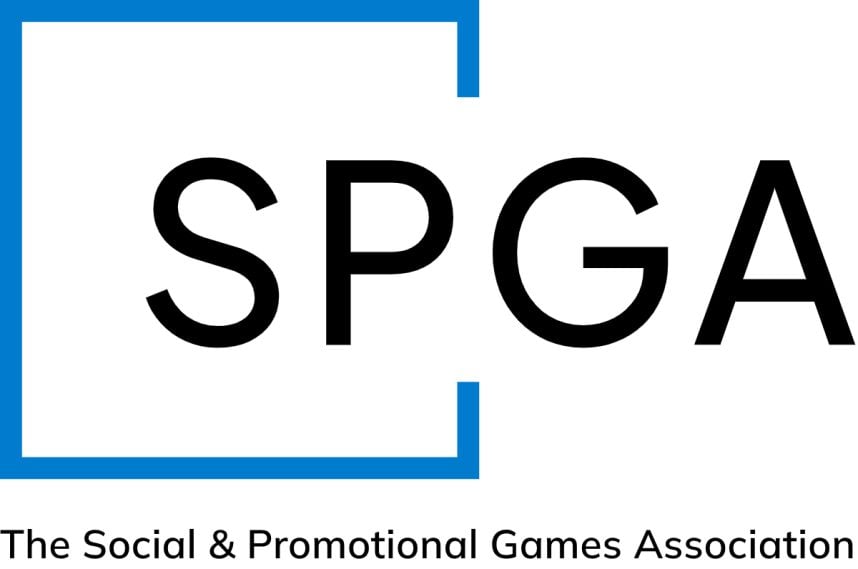
Social Gaming Industry Leaders Unite to Defend Emerging Sweepstakes Market
Major social gaming operators have formed the Social & Promotional Games Association (SPGA) to advocate for and regulate the emerging social casino industry. This comes amid growing scrutiny of social and sweepstakes gaming platforms.

Logo of Social Gaming Association
Social gaming platforms traditionally offer free-to-play casino games where players use virtual tokens without real-money prizes. The newer sweepstakes model allows players to win cash prizes through a secondary virtual currency, though operators maintain this follows established promotional sweepstakes rules similar to those used by major retailers.
The SPGA's founding members include prominent operators like 10 Ten Gaming, Blazesoft, Fliff, FSG Digital, Gold Coin Group, High 5 Entertainment, and others. The organization aims to:
- Educate lawmakers and the public about social gaming
- Implement age verification (18+)
- Use regulation-grade identity verification
- Establish best practices for advertising and consumer protection
- Ensure fair play standards
While the industry generated over $40 billion in the past decade, it faces increasing regulatory challenges. Several states including Idaho, Kentucky, Louisiana, Michigan, Montana, Nevada, and Washington, DC have deemed certain social sweepstakes casinos illegal gambling operations.
The SPGA contends that most users (over two-thirds) never spend money on their platforms. However, critics point to cases like a recent Washington Post report of a player losing nearly $100,000 on a social sweeps casino. The association maintains such cases are rare exceptions rather than common occurrences.
Right now, the industry stands at a crossroads between entertainment and gambling regulation, with the SPGA working to establish legitimate operational standards while facing increased scrutiny from state regulators.
Related Articles

Biden Administration Approves Two Contested Tribal Casino Projects in California, Oregon

